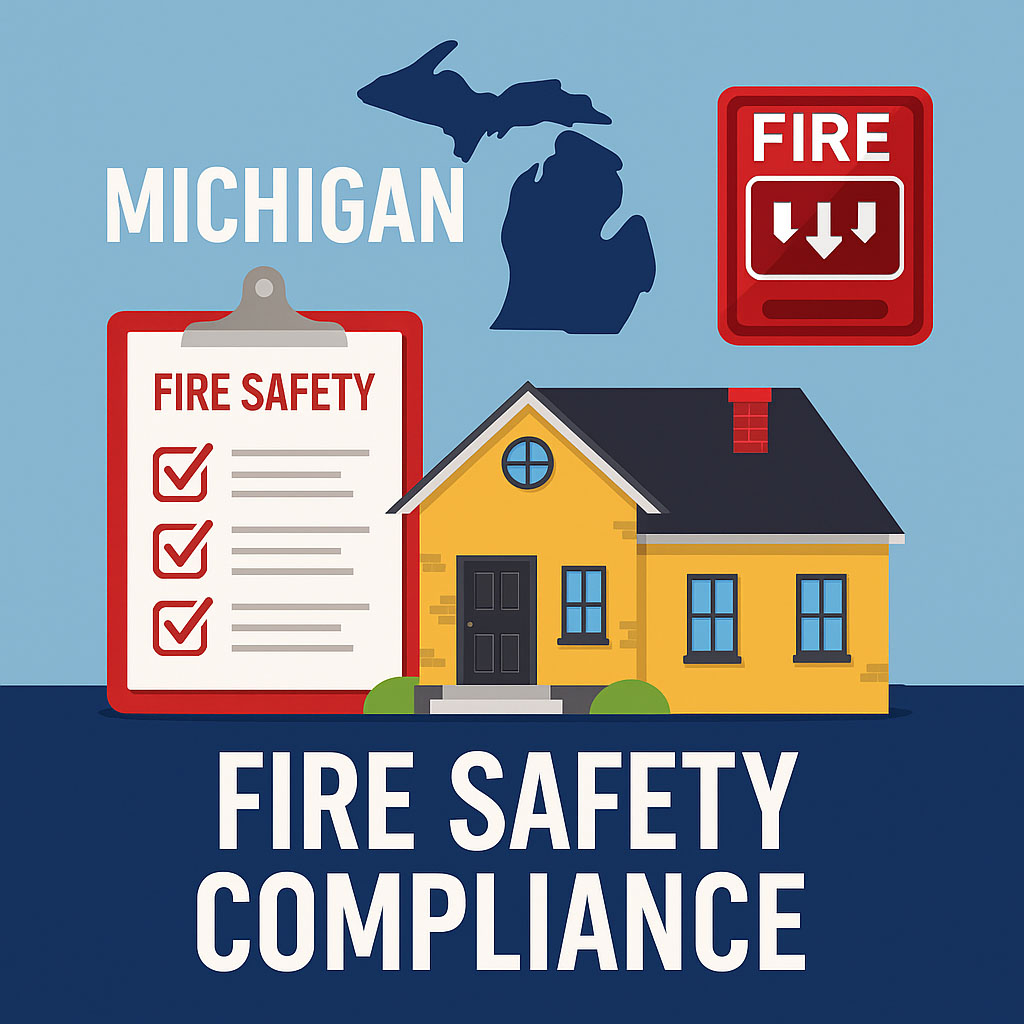- (800) 252-0368
- Monday - Friday: 8:00am to 5:00pm
- |
The Legal Side of Fire Safety: What Michigan Property Owners Must Know - Prudential Alarm
- Home
- Fire & Life
- The Legal Side of Fire Safety: What Michigan Property Owners Must Know

As a property owner in Michigan—whether commercial, industrial, or multi-residential—understanding fire safety regulations isn’t just about protecting lives and property.
It’s also about staying compliant with state and local laws to avoid hefty fines, liability, or business disruptions.
This guide breaks down the legal essentials every Michigan property owner needs to know.
Understanding Michigan Fire Codes
Michigan follows the International Fire Code (IFC), as adopted by the Michigan Building Code (MBC) and enforced by local jurisdictions. This means:
- Commercial buildings must have fire alarm systems that are regularly inspected and maintained.
- Multi-residential properties (like apartment complexes) require interconnected smoke alarms, often in each bedroom and common hallway.
- Systems must be installed according to NFPA 72, the National Fire Alarm and Signaling Code, and inspected by certified professionals.
Inspection Requirements & Frequency
Michigan law mandates annual fire alarm system inspections for most commercial and multi-family buildings. Some key inspection requirements include:
Visual inspections of all devices (smoke detectors, pull stations, notification appliances)
Functional testing of alarms, annunciators, and communication with monitoring stations
Battery tests and confirmation of secondary power supply integrity
Documentation of inspection results and retention for at least 3 years
Failing to meet inspection requirements can lead to violations under the Michigan Fire Prevention Code (Act 207 of 1941).
Permits, Upgrades & System Retrofits
If you’re remodeling or upgrading your property, local fire authorities may require:
Updated system design plans
Permits for modifications or expansions
Retrofitting of older buildings to meet current fire code—especially for those built before 1975
Michigan also has adopted changes in 2021 regarding the modernization of voice evacuation systems and intelligent notification appliances.
Liability for Non-Compliance
If a fire occurs and your building was not up to code:
You may be denied insurance claims
You could face civil lawsuits or criminal charges if negligence is proven
Your business or property could be shut down by the local Fire Marshal
Special Considerations for Landlords
Under Michigan law, landlords are required to:
Provide and maintain smoke detectors in all dwellings
Install carbon monoxide detectors in buildings with fuel-burning appliances
Educate tenants on proper use and maintenance
Failure to do so can lead to penalties and legal liability.
Partnering with the Right Fire & Life Safety Provider
Choosing a licensed fire alarm provider like Prudential Alarm ensures your systems are:
Designed to meet state and local codes
Professionally installed and monitored
Maintained and inspected per legal requirements
We help you stay compliant while protecting lives and minimizing liability.
Our Final Thoughts…
Fire safety isn’t just a checklist—it’s a legal obligation. Understanding Michigan’s fire safety regulations empowers you to make better decisions for your property, your tenants, and your business. Don’t wait for an emergency or inspection to get compliant—take proactive steps today.

